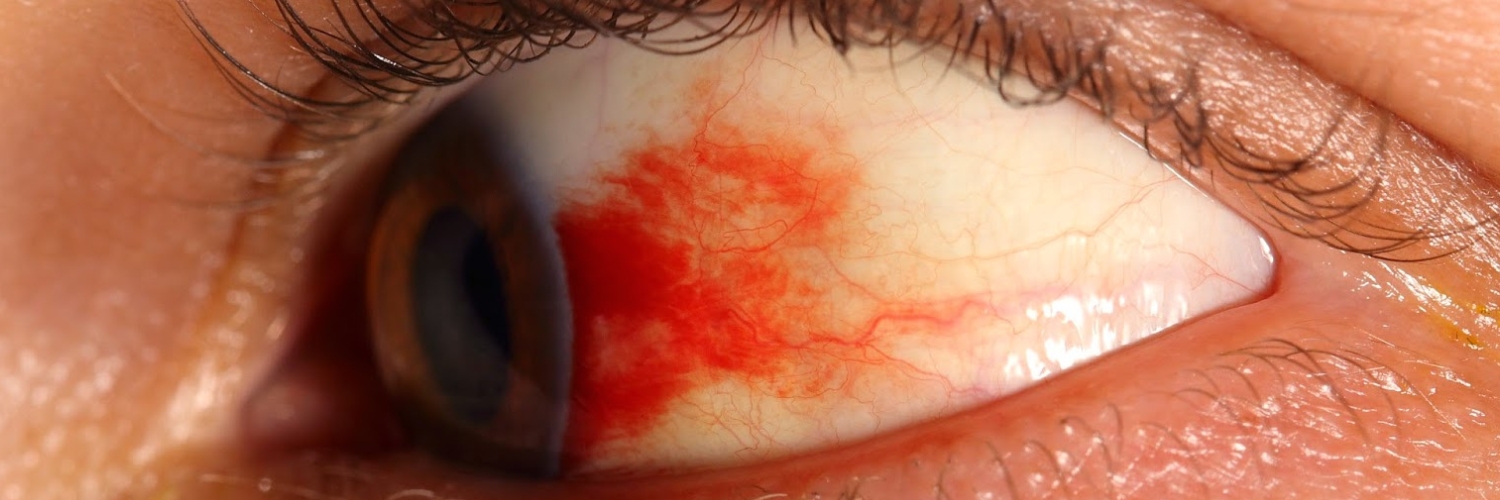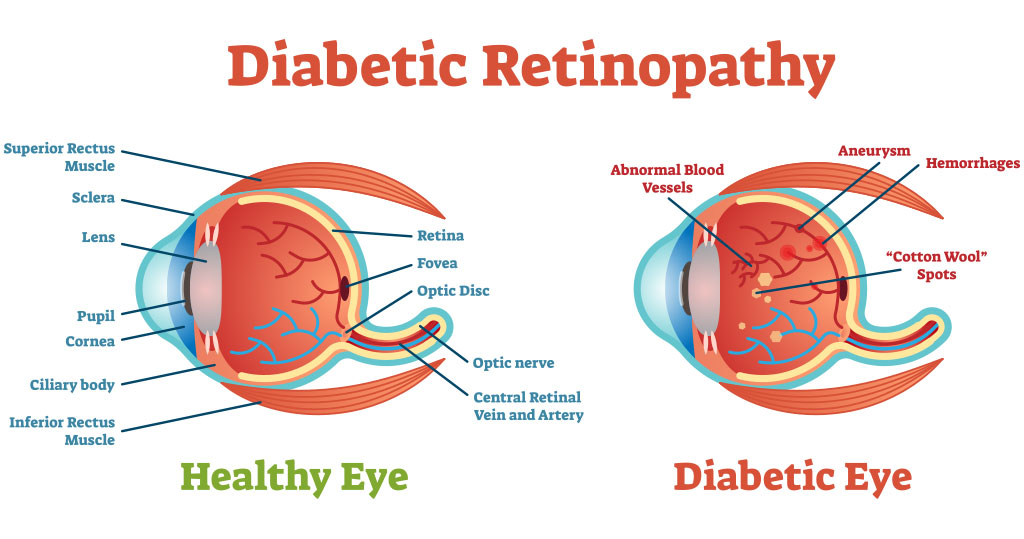Pasteur Eye Hospital
Eye Conditions
Contact Us

Diabetic Retinopathy is an eye condition that only occurs in people with diabetes. This includes people who have type 1 or type 2 diabetes and gestational diabetes (which is diabetes during pregnancy). People with this eye condition can experience decreased vision and eventually blindness. It is caused when the blood vessels of your retina are damaged and results in swelling and/or bleeding in the retina.

It is important to always look at your blood sugar and keep it under control. The reason for this is because high blood sugar in diabetes creates a higher risk for this complication.
There are certain symptoms that you have to look out for as a diabetic. At the start of Diabetic Retinopathy, you might not even be aware that you have this eye complication. In other words, you might not experience any symptoms at all, or it can be that you experience small vision problems. That is why, as a diabetic, it is important to visit an ophthalmologist once a year. If Diabetic Retinopathy is found early on, your eye specialist can help you take the necessary steps to protect your vision.
Book an appointment with one of our eye specialists at Pasteur Eye Hospital.
Symptoms:
The common form of this complication is called Early Diabetic Retinopathy, or non-proliferative diabetic retinopathy (NPDR)
The more advanced stage is called Advanced Diabetic Retinopathy, or proliferative diabetic retinopathy (PDR).
Early diabetic retinopathy: This is where the blood vessels found in your retina are weakened, which can lead to tiny bleeds and areas of swelling in your retina (called macular oedema).
Advanced diabetic retinopathy: This is the more serious stage of this eye complication, where the damaged blood vessels now become blocked. These blocked blood vessels then cause new blood vessels to grow unusually large and can lead to excessive bleeding and a retinal detachment.
Even though having diabetes already gives you the risk of experiencing this eye complication there are certain factors that can contribute to this condition.
Factors increasing the risk of Diabetic Retinopathy are:
There are different treatments that can be used for Diabetic Retinopathy. During the early stages of this condition your eye doctor will just monitor your eyes and no treatment may be necessary. A comprehensive dilated eye exam might be needed regularly. If the Diabetic Retinopathy is in a more advanced stage, specific treatment would be advised by your eye specialist.
These treatments may include:
Even though there are treatments that can be followed for Diabetic Retinopathy, there are also things that you can do to prevent this eye complication. It is always important to manage your diabetes as well as you can because this can help you to prevent Diabetic Retinopathy.
Remember the following:
Always take care of yourself and your diabetes the best way that you can. Phone us at Pasteur Eye Hospital today to request a consultation with one of our ophthalmologists.
Pasteur Eye Hospital
Eye Conditions
Contact Us
© Copyright 2022 Pasteur Eye Hospital. All Rights Reserved.
No article or picture may be reproduced\published without the written consent of Pasteur Eye Hospital.
Managed with ❤️ by Cuberoo